First Aid Course in Rawalpindi Islamabad 0333-9014677
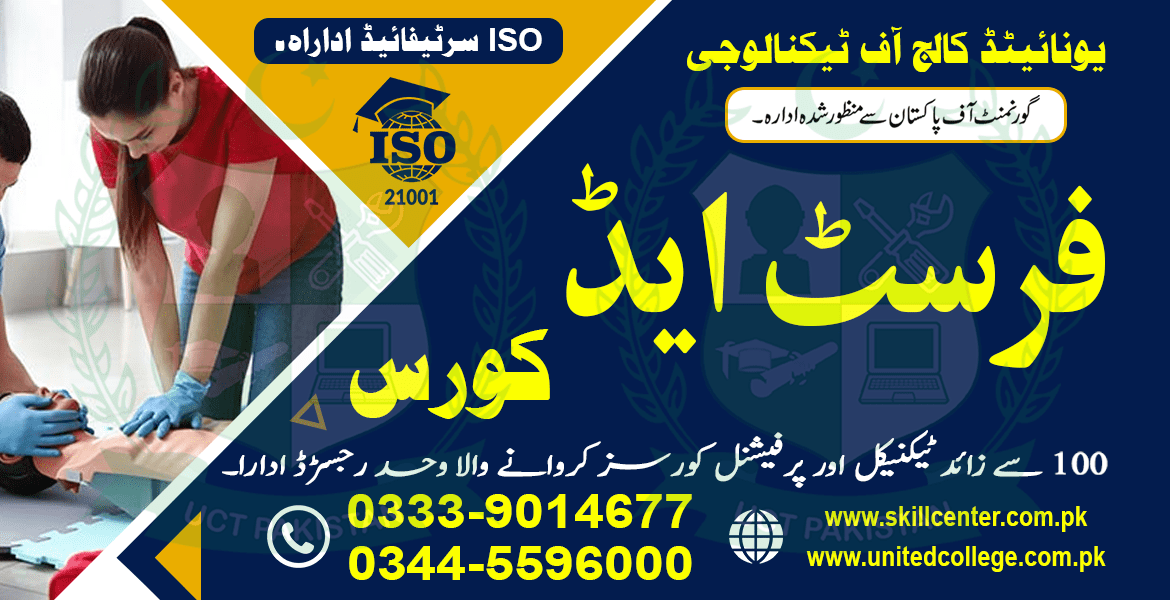


Introduction
A First Aid course is designed to provide individuals with the knowledge and skills to provide basic life support and first aid in emergencies. This course is suitable for individuals who may be required to provide first aid in their workplace or community, as well as for those who are simply interested in learning how to respond in emergencies. The course covers a range of topics, including basic life support techniques such as CPR and the use of an Automated External Defibrillator (AED), assessment and management of common injuries such as bleeding, burns, fractures, and head injuries, as well as management of medical emergencies such as asthma attacks, seizures, and allergic reactions.
In addition to providing practical skills, a First Aid course will also cover legal and ethical issues related to providing first aid, the roles and responsibilities of a First Aider, and the contents of a First Aid kit. The course is typically delivered over one or two days and involves a mix of lectures, demonstrations, and hands-on practice sessions. Upon successful completion of the course, participants will receive a First Aid certificate that is valid for a specified period. Overall, a First Aid course provides participants with the knowledge and skills necessary to identify and manage emergencies and can make a significant difference in the outcome of an emergency.
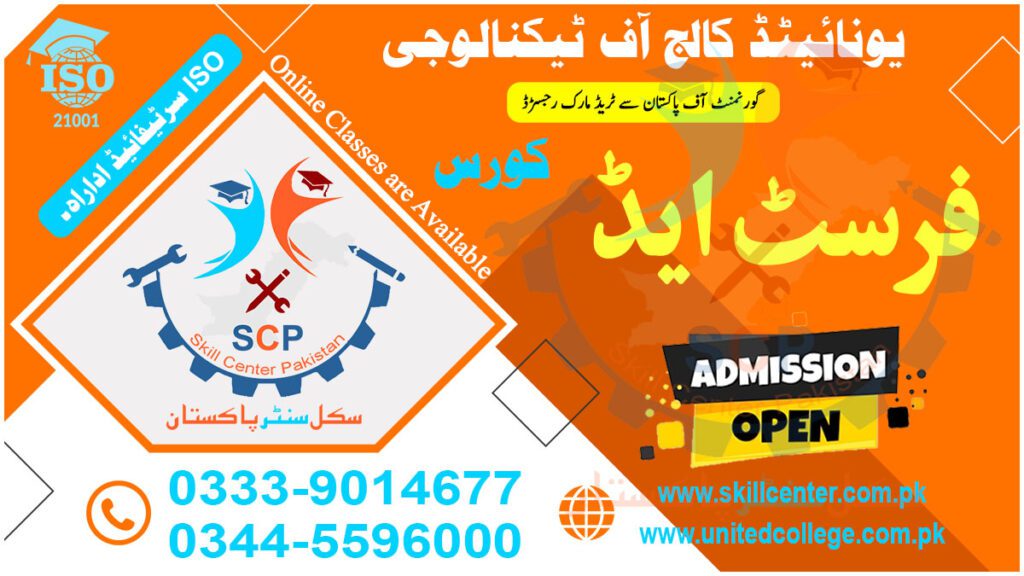

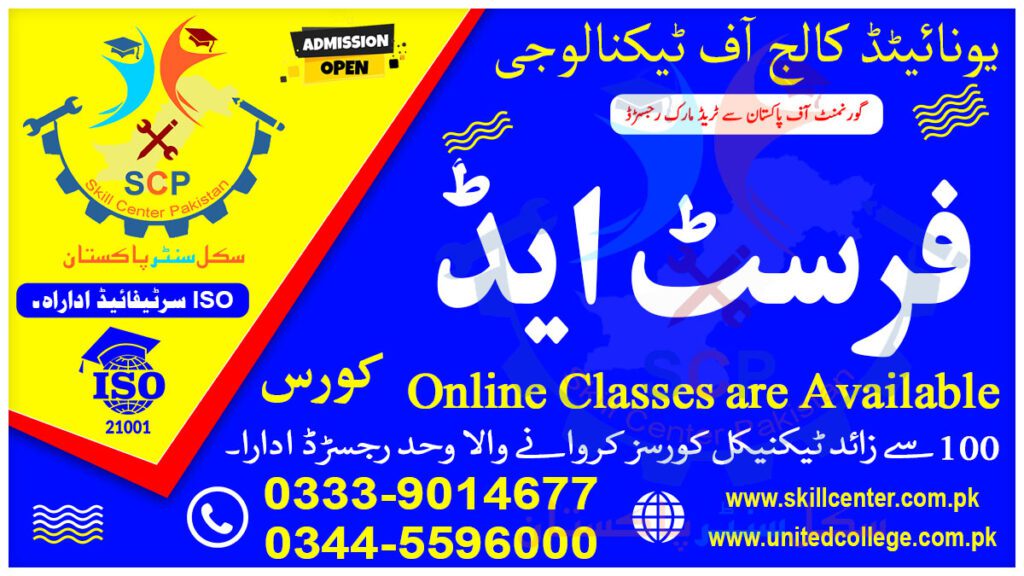

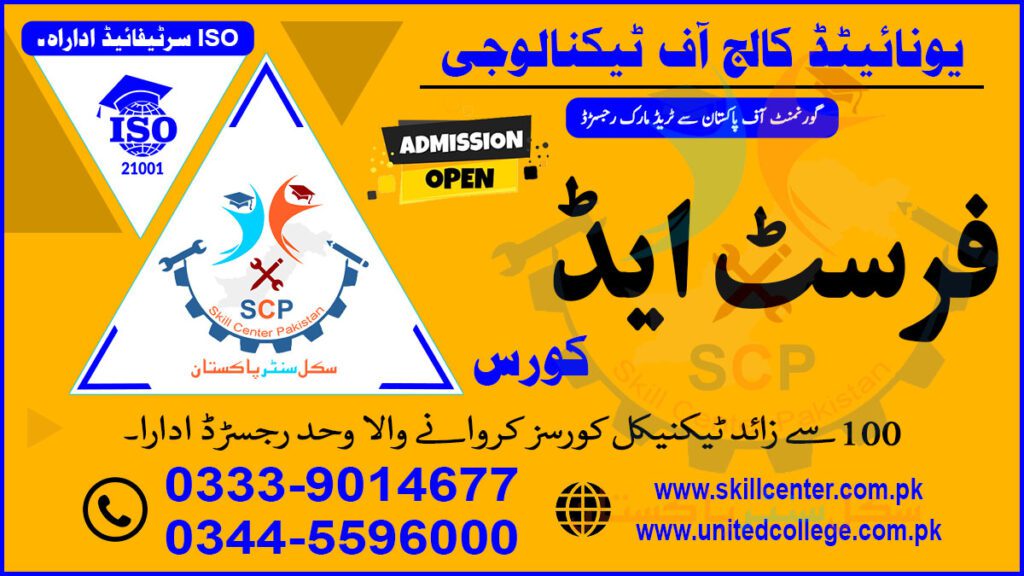

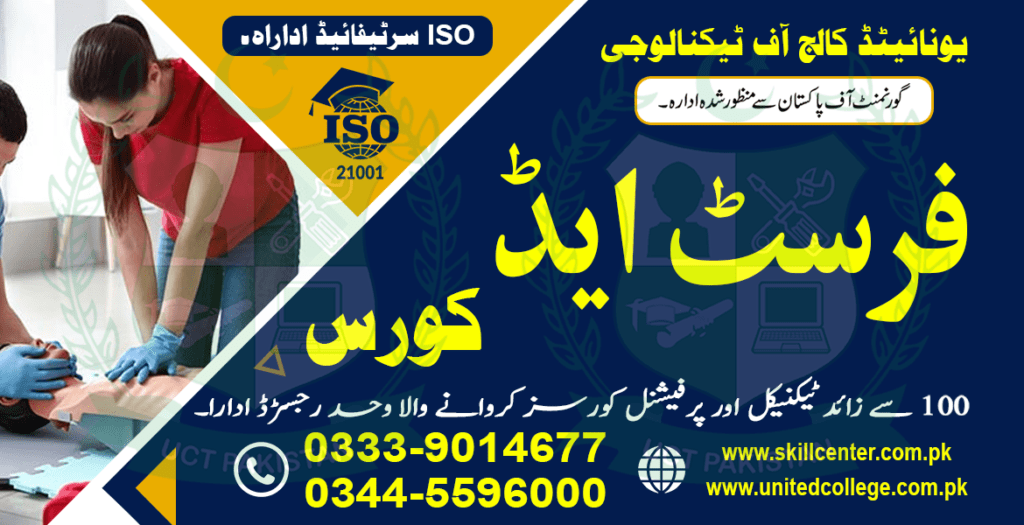

First Aid Training Course Outline
A First Aid course provides participants with the knowledge and skills to provide basic life support and first aid in emergencies. The following is a possible course description for a standard First Aid course:
Course Objectives
- To provide participants with the knowledge and skills necessary to identify and manage emergencies
- To teach participants how to perform basic life support techniques such as CPR and the use of an Automated External Defibrillator (AED)
- To teach participants how to assess and manage common injuries such as bleeding, burns, fractures, and head injuries
- To provide participants with the knowledge and skills necessary to identify and manage medical emergencies such as asthma attacks, seizures, and allergic reactions
Course Content
Introduction to First Aid
- What is First Aid?
- First Aider tasks and obligations;
- Legal and ethical concerns with administering first aid;
Basic Life Support
- The chain of survival
- The ABCs of basic life support (Airway, Breathing, Circulation)
- The administration of cardiopulmonary resuscitation (CPR) and the use of an AED (AED)
Common Injuries
- Soft tissue injuries such as cuts, bruises, and sprains
- Fractures, dislocations, and head injuries
- Burns and scalds
- Eye injuries
Medical Emergencies
- Asthma attacks and other breathing difficulties
- Seizures and convulsions
- Allergic reactions and anaphylaxis
- Diabetes and hypoglycemia
Environmental Emergencies
- Heat exhaustion and heat stroke
- Hypothermia and frostbite
- Poisoning, bites, and stings
First Aid Kits and Resources
- Contents of a First Aid kit
- Other resources and equipment needed for providing first aid
- Maintaining and restocking a first-aid kit
Course Delivery
The course is typically delivered over one or two days and involves a mix of lectures, demonstrations, and hands-on practice sessions. Participants will be assessed through written and practical examinations, and upon successful completion of the course, they will receive a First Aid certificate that is valid for a specified period. It is important to note that while a First Aid course provides valuable knowledge and skills, it is not a substitute for professional medical care, and participants should always seek appropriate medical assistance when necessary.
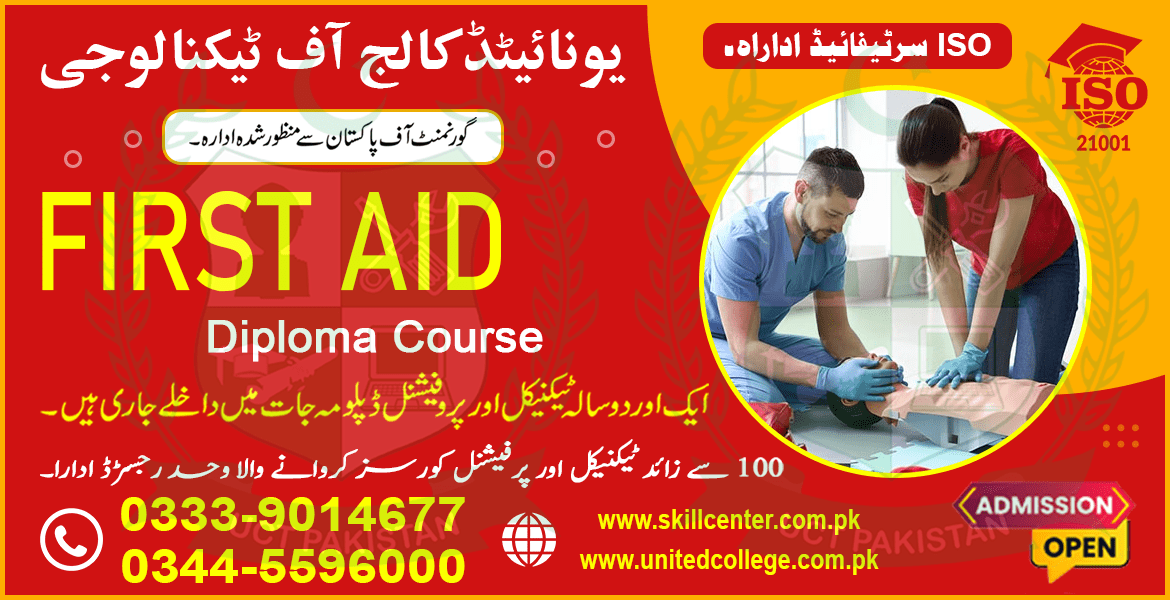







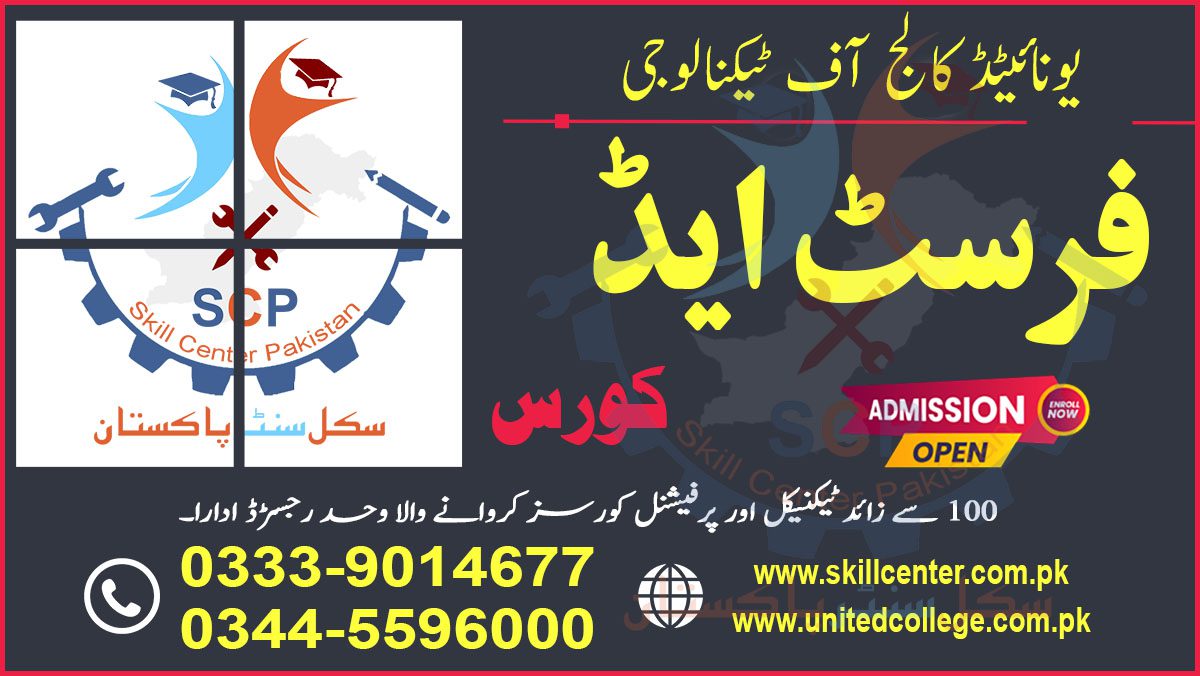








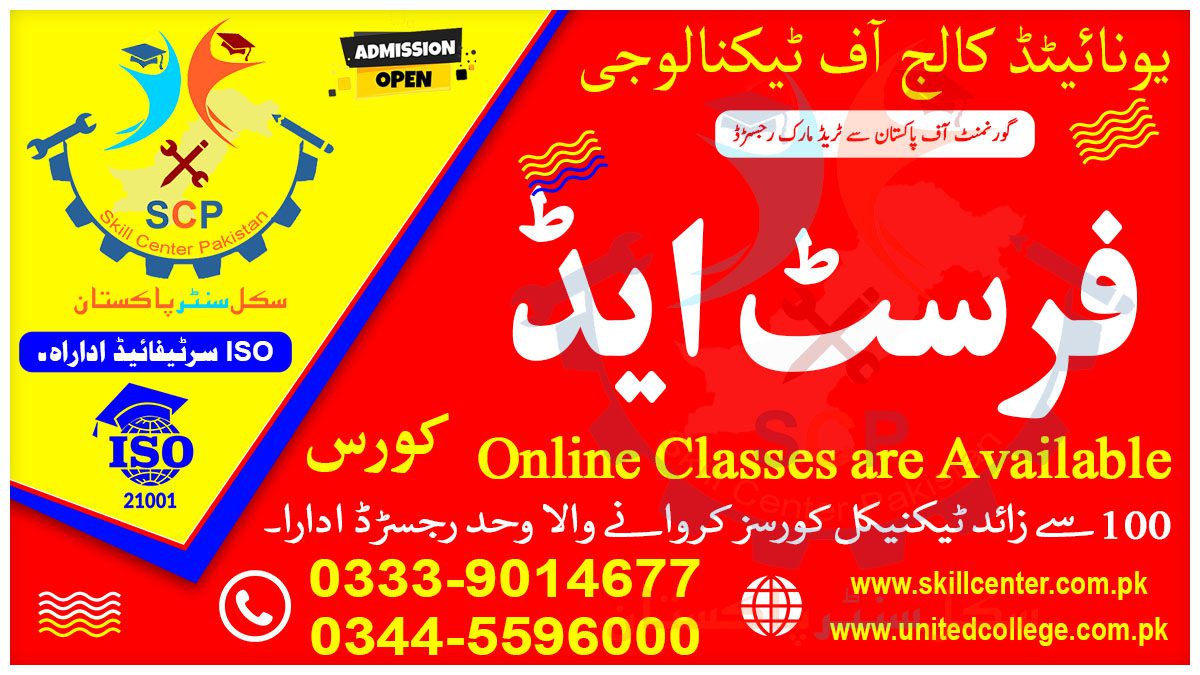







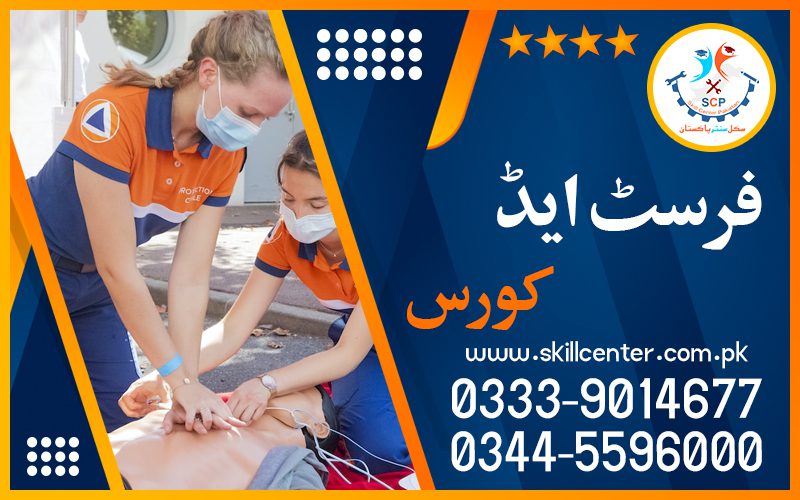





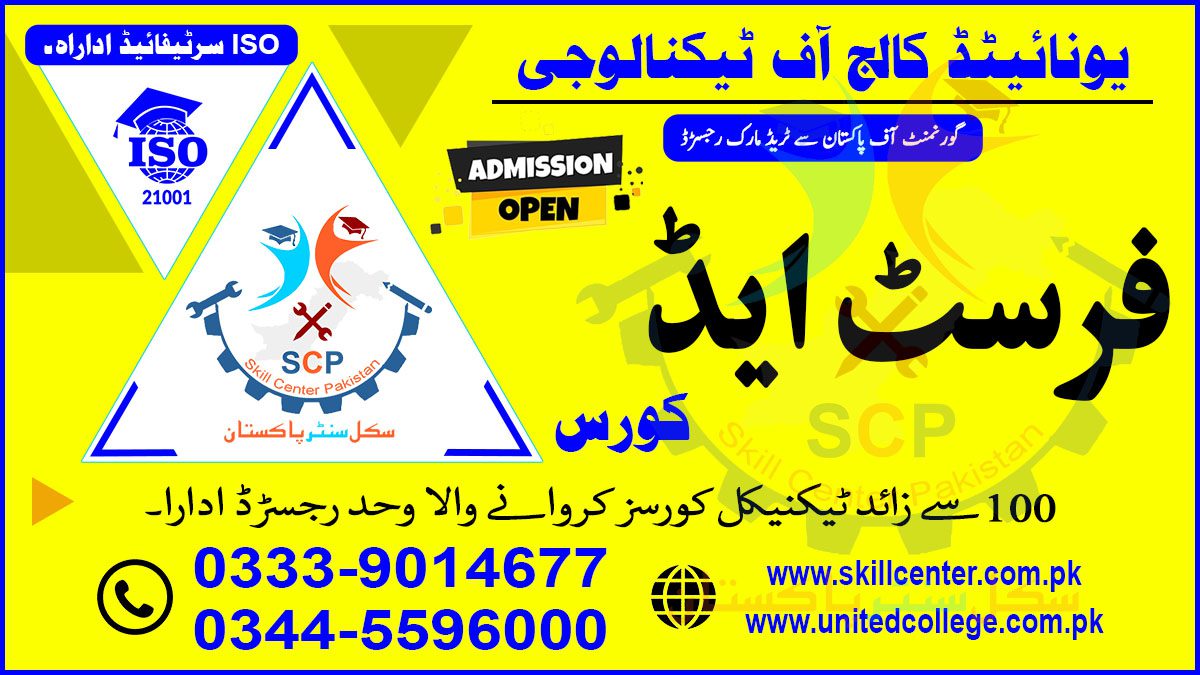





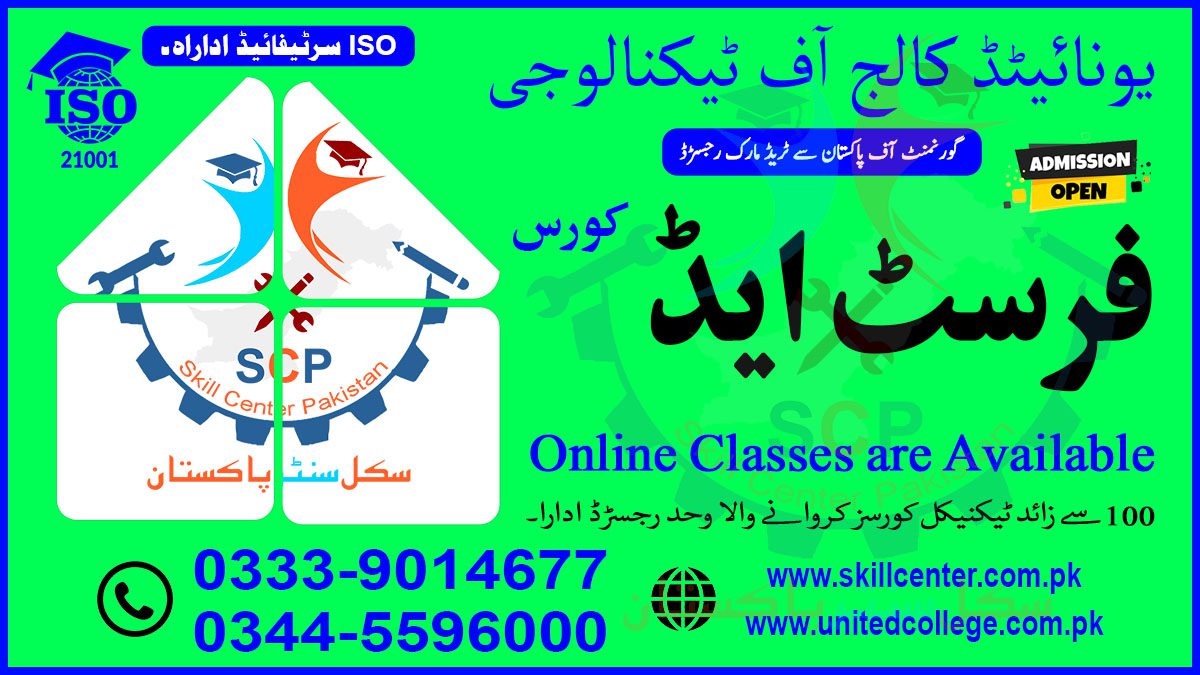








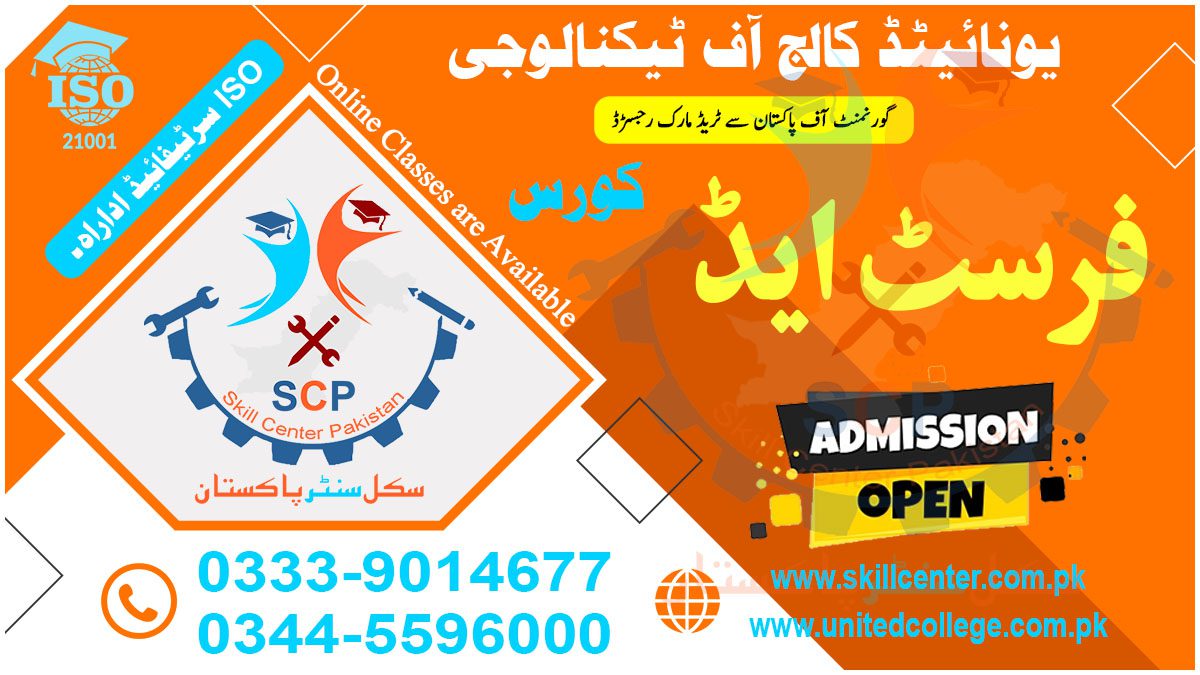





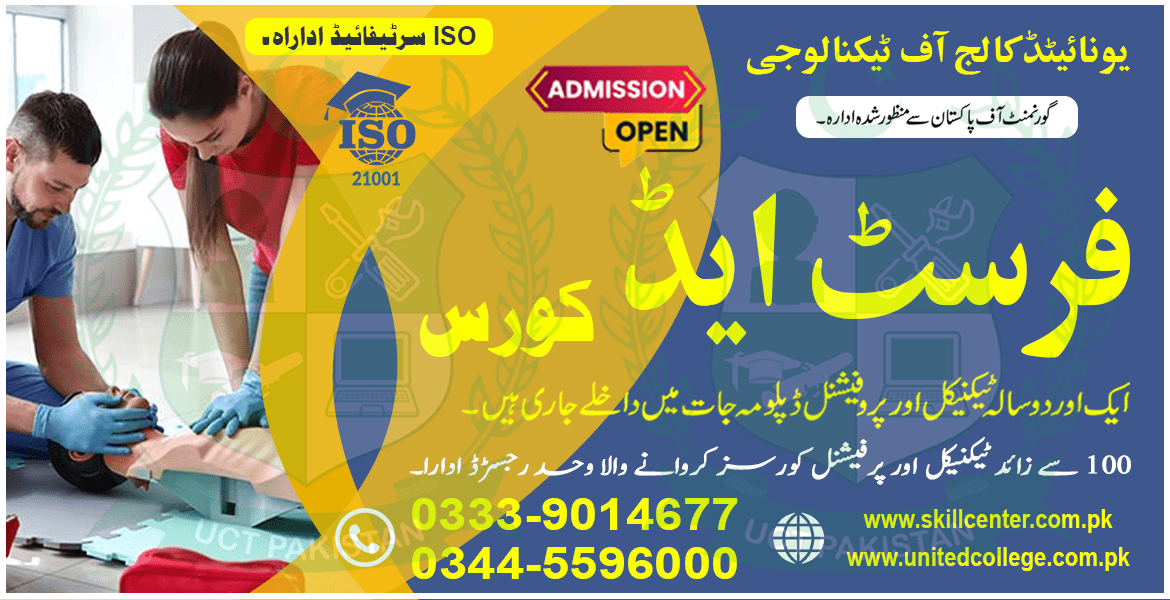










Hands-On Practical Training
Interactive Learning Environment
The First Aid Course provided by Skill Center Pakistan emphasizes practical instruction which leads to practical abilities among its participants. The training happens through active sessions with qualified instructors who offer step-by-step instruction.
Key Practical Skills Covered
Students will complete important first-aid technique exercises which consist of the following:
- CPR (Cardiopulmonary Resuscitation)
- Wound Dressing and Bleeding Control
- Fracture Stabilization and Splinting
- Choking Relief (Heimlich Maneuver)
- Burn Management and Emergency Response
Real-Life Simulation Scenarios
During the training, participants perform realistic exercises using mannequins alongside role-play situations. Through realistic training scenarios, you learn to apply your acquired knowledge when confronting emergencies with cardiac arrest victims, subjects with severe bleeding, and injury accidents so you maintain confidence in real-life situations.
Benefits of Hands-On Training
- The instruction creates competence for managing serious emergencies.
- The curriculum includes actual performance activities that strengthen what students learn theoretically.
- The training prepares individuals to make effective responses when real-life emergencies occur.
Upon completing this course you will hold both practical abilities and self-assurance to immediately deliver effective first aid at crucial moments.








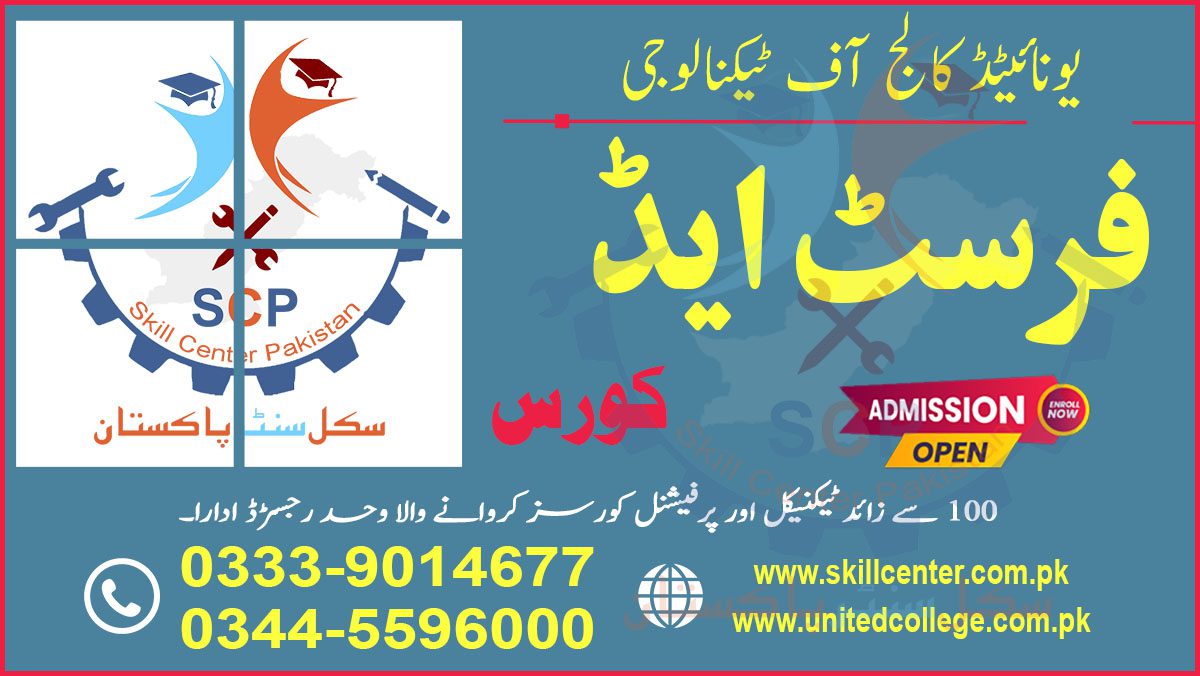





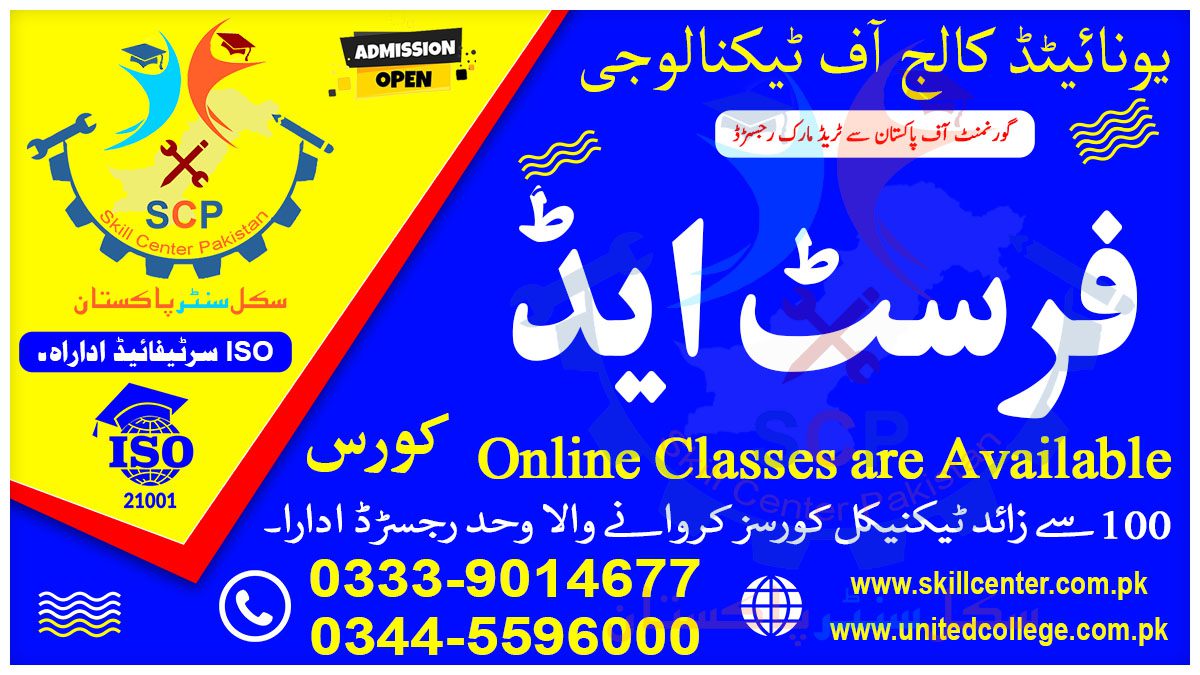























Benefits of First Aid Training
The valuable first aid knowledge teaches people how to manage emergencies effectively and confidently. Here are the main benefits a First Aid Course provides to its enrollees.
1. Life-Saving Skills
The skills from First Aid Training prepare people to react effectively to critical situations through specific knowledge and response methods. These vital skills enable individuals to keep patients alive along with controlling major bleeding and stopping choking instances until medical professionals reach the scene.
2. Increased Confidence in Emergencies
People who understand emergency response techniques remain calm because they act confidently in critical moments. The practice of First Aid gives people the self-assurance needed to lead emergencies and deliver prompt help to individuals facing trouble.
3. Promotes Safety Awareness
The educational training provides you with advanced knowledge about possible dangers that exist inside everyday spaces including workrooms, educational facilities and domestic areas. Such awareness produces a safer environment because it enables people to avoid accidents.
4. Workplace and Career Advantages
Having first aid certification proves essential for organizations when they select candidates because it creates safer working environments. The professional training boosts employment potential and maintains necessary safety standards and creates possibilities to work in healthcare services or emergency medical roles.
5. Quick Response to Injuries and Illnesses
The education in First Aid Training demonstrates how to handle and assess healthcare situations efficiently. The fast nature of correct intervention shortens condition severity and speeds up healing time and stops complications from occurring.
6. Fosters Responsibility and Teamwork
Learning first aid makes people both responsible for emergencies and able to work as effective team members. The first aid knowledge makes you a significant asset in the community where you can help people during emergencies while building an environment based on care support.
7. Peace of Mind for Families and Communities
Knowledge acquisition in first aid training creates a sense of reassurance among people who care for others such as parents, teachers and community members. With the right training you will become ready to handle all accidents that might affect children and elderly people or anyone under your care to maintain both safety and wellbeing.
8. Cost-Effective and Time-Efficient
People typically find First Aid Training affordable and its completion requires minimal time expenditure. The skills gained from this training will stay with you forever while providing usable knowledge in numerous life applications so it proves to be a remarkable value.
First Aid Training functions beyond being a practical skill because it stands as a fundamental duty which offers advantages to people as well as their families and their workplaces along with societal communities. The knowledge of first aid makes you a responsible person who actively prepares to help others during critical situations.





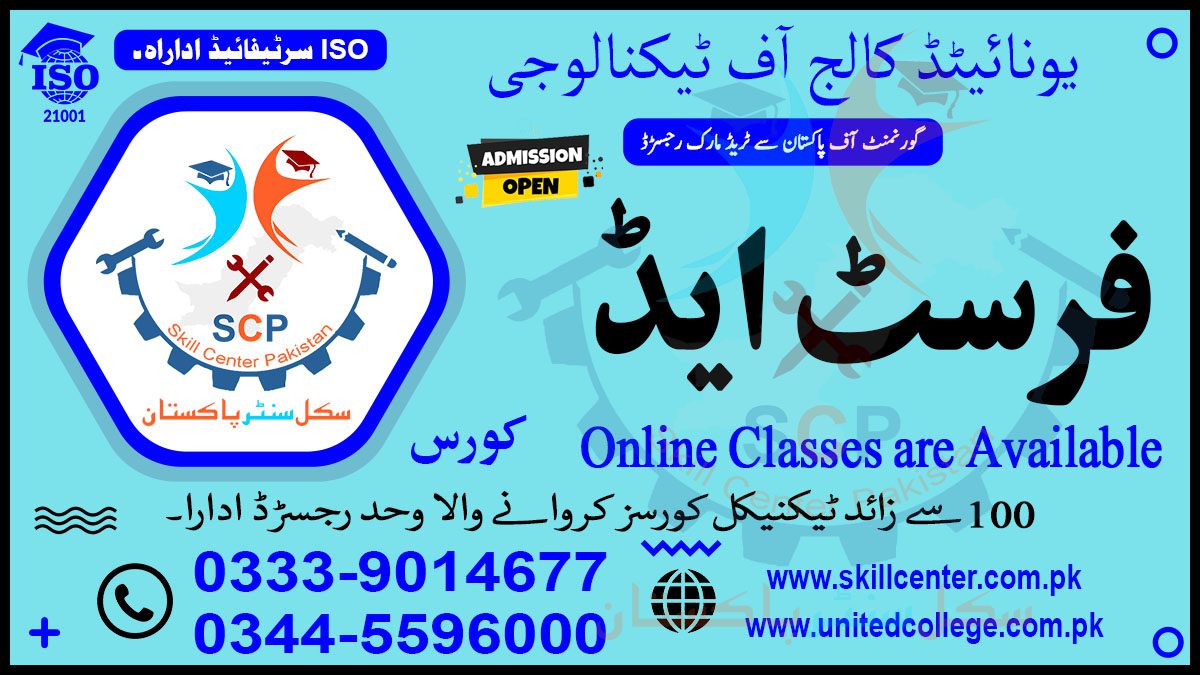



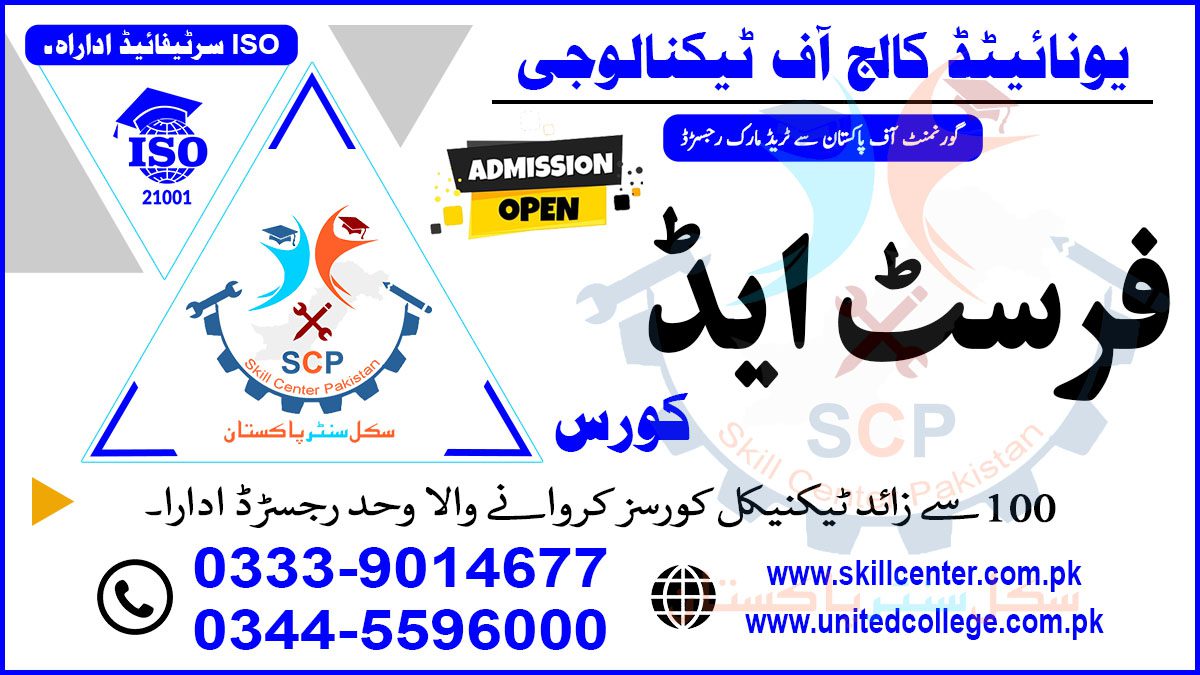

















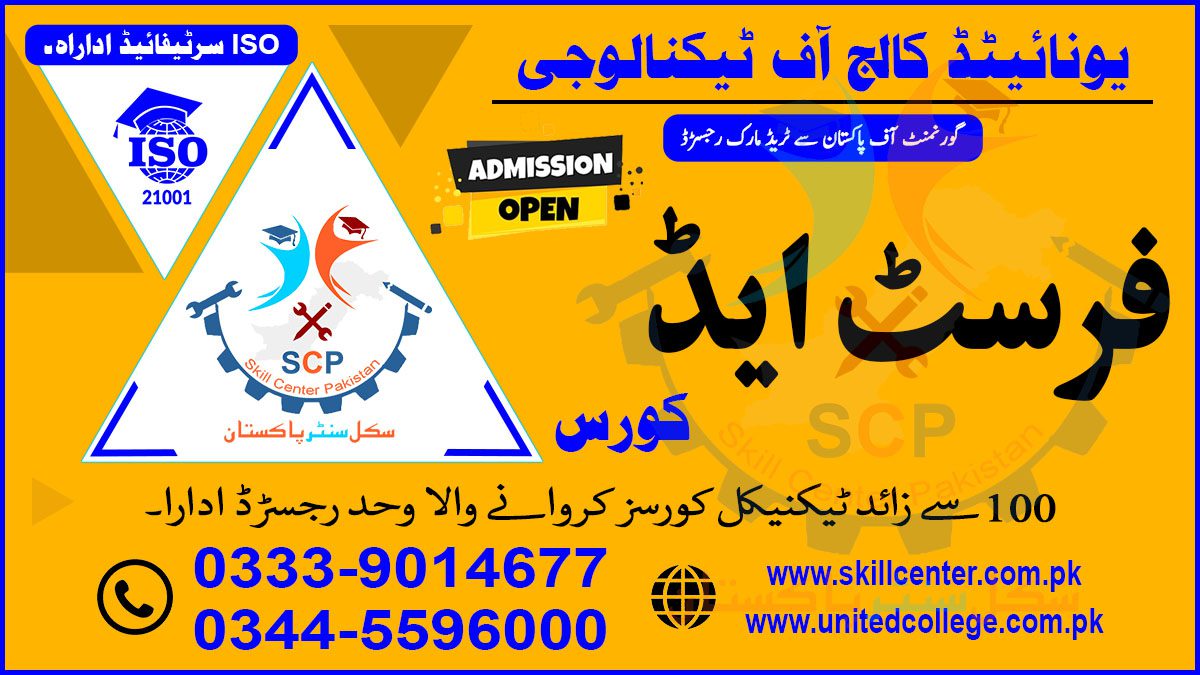







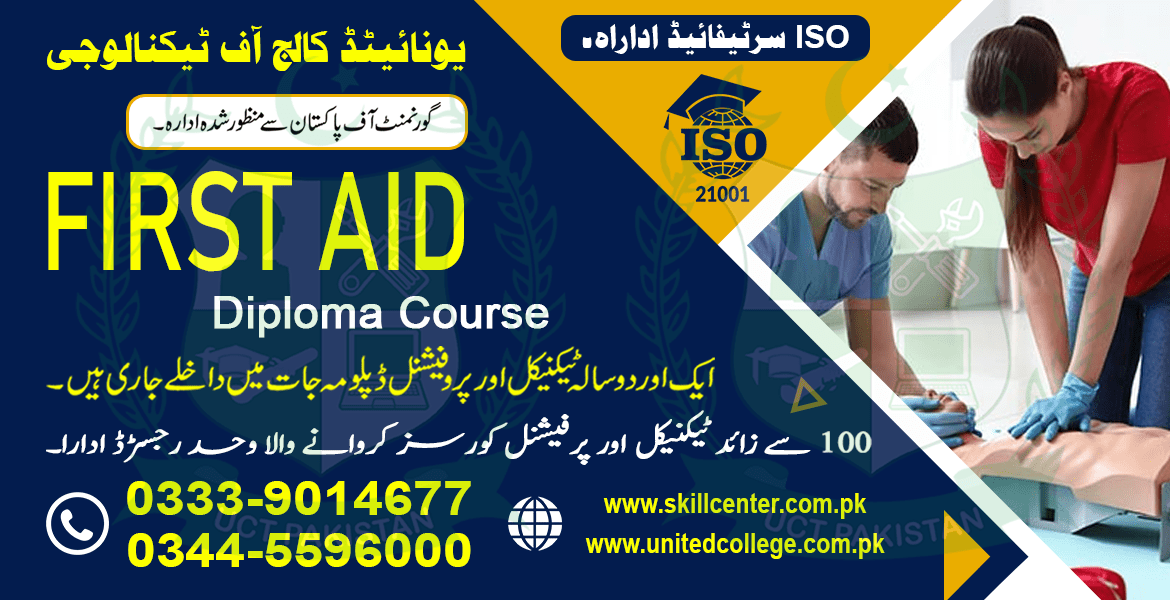





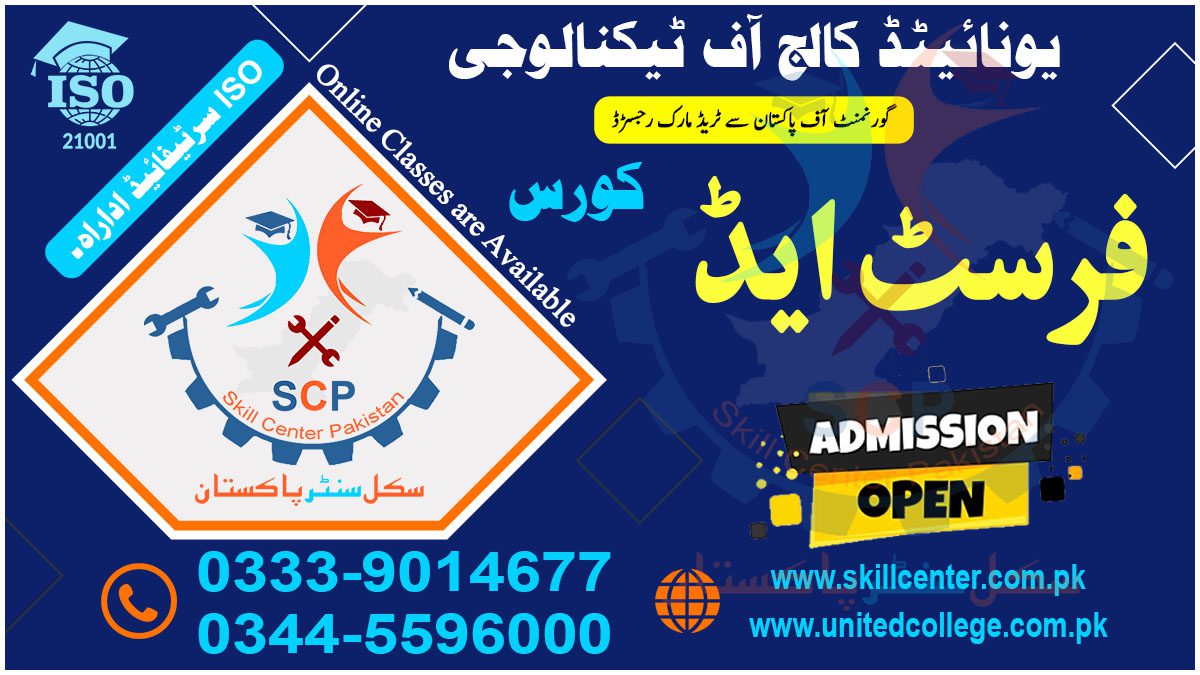




Training Duration and Schedule
Duration:
Skill Center Pakistan provides First Aid training in Rawalpindi and Islamabad which delivers condensed and detailed curriculum in 2-3 months. The training period falls between 2-3 months based on which certification level you want to obtain. The training duration covers only the essential lifesaving abilities while requiring minimal personal time.
Course Duration: 3 MONTH
Schedule:
The training program allows students to choose from multiple scheduling possibilities because of its versatile curriculum design. The tutoring program runs across weekdays and weekends offering morning to evening slots for students to pick according to their schedule. The training schedule provides two flexible options which allow you to choose between a concentrated one-day session or an extended two-day education program that adapts to your schedule.
Flexibility:
The work-friendly and student-centered course at Skill Center Pakistan provides accessible schedule options to accommodate the needs of all professional and student groups including working people and housewives. Contact Skill Center Pakistan directly for schedule information together with reservation options in order to begin your certified first aider training.































Eligibility and Target Audience
The First Aid Course in Rawalpindi which Skill Center Pakistan delivers has been designed to offer complete inclusivity for diverse groups of participants. The following section presents information about enrollment standards alongside target participants who should attend this vital training curriculum:
Eligibility Criteria
- The enrollment criteria at 16 years of age specify the minimum age requirement for participants in the course.
- The course accepts all candidates even if they lack medical training or previous first-aid abilities. Organization in the course aligns its approach to meet the needs of individuals starting from scratch and people who already possess basic experience.
- The desired language abilities for this course include basic proficiency in both English and Urdu since training materials and directions will be presented in these two languages.
Target Audience
This specific educational training exists to benefit a wide range of people from different sectors who want to gain lifesaving abilities. The target audience includes:
- Medical personnel who extend from nurses to paramedics along with student medical professionals want to improve their emergency response abilities.
- School staff members along with teachers serve as the target audience who seek to protect students attending school.
- Those who take on the role of protecting their children or dependent relatives including elderly relatives qualify as parents and caregivers.
- Office workers together with HR personnel and safety officers within corporations need this training to develop workplace safety.
- Persons of student age want to learn how to tackle emergencies in their everyday lives.
- Security staff and guards represent personnel who regularly deal with emergencies during their work routines.
- Individuals who dedicate themselves to community causes or disaster relief operations make up the category of Community Volunteers.
The course provides learning opportunities that fulfill both professional certification needs and disaster preparedness requirements for any population type. Take the First Aid Course at Skill Center Pakistan to gain confidence as a first responder during any crisis.









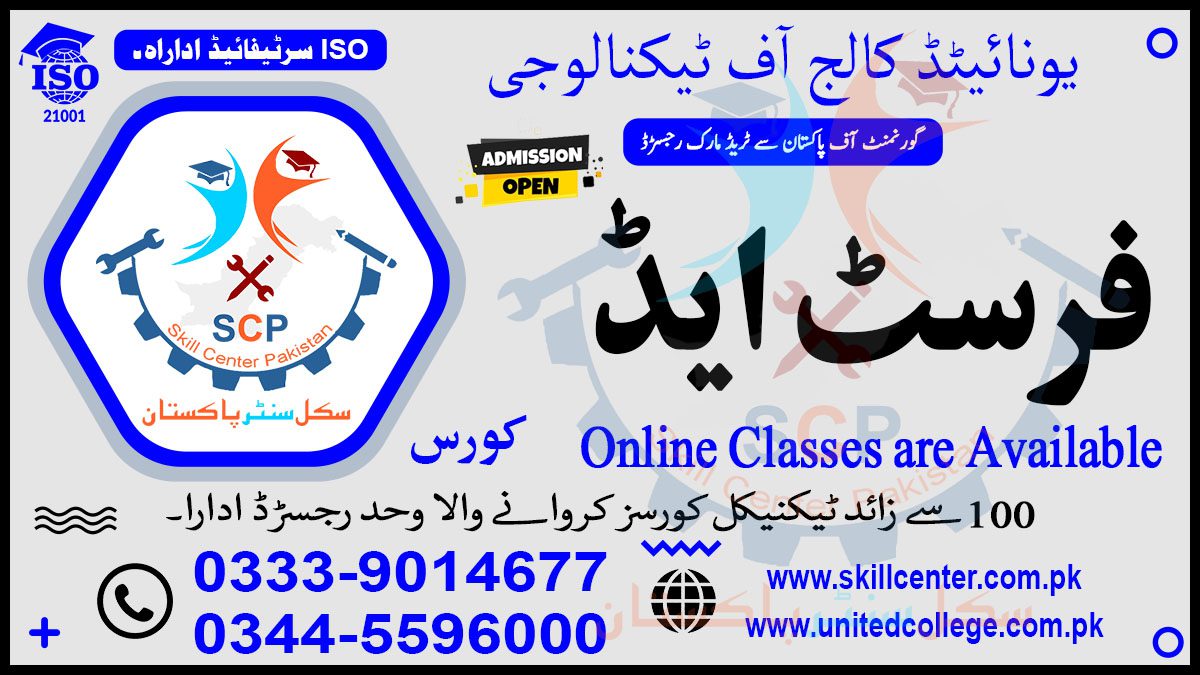






























Certification and Accreditation
Nationally Recognized Certification
Participants who pass the First Aid Course through Skill Center Pakistan will earn a certification which is authorized by national standards. Receiving this accepted certification provides clear evidence of your basic first aid abilities.
Accreditation by Relevant Authorities
The health and safety authority has accredited the course to maintain high industry standards in compliance with their requirements. The accreditation confirms that training stays updated with current guidelines through which it offers valid credentials for both work-based requirements and personal emergencies.
Internationally Aligned Training
The First Aid Course at Skill Center Pakistan applies international first aid protocols to create credentials which gain acceptance from both local and international organizations. The credential proves valuable when people pursue career advancement in various industry areas.
Enhancing Your Credentials
Your life-saving skills from the accredited certification improve your professional image as well as your competencies. The certification shows your dedication to safety preparations regardless of your professional background as a healthcare worker teacher or regular citizen.
Up-to-Date and Reliable Training
Skill Center Pakistan operates a continuous update system to maintain the most recent first aid practices in all its training materials. Participants experience the most dependable and present-day training as Skill Center Pakistan implements regular updates to their materials which makes the resulting certification both practical and highly regarded.
This accredited certification enables you to handle emergencies with both skill and confidence which creates substantial impact during critical situations.
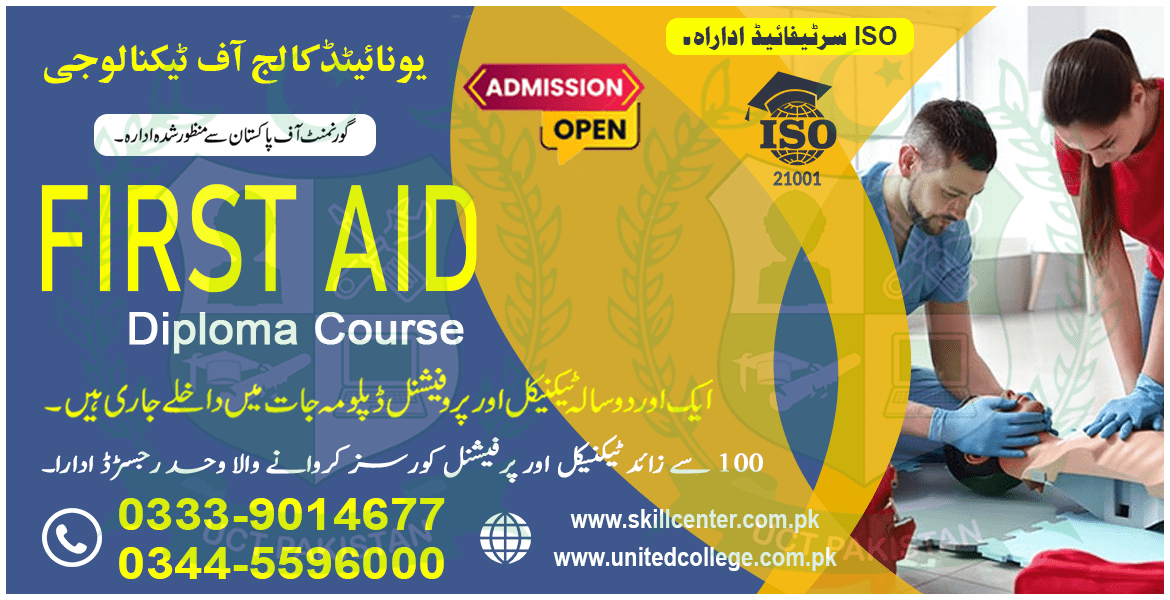






































Fee Structure and Discounts
The First Aid Course at Skill Center Pakistan in Rawalpindi and Islamabad operates with a budget-friendly payment plan that delivers adaptable rates to all prospective training members. Below are the details:
Course Fee
The regular price for First Aid Course attendance amounts to PKR 25,000 for each participant. The fee provides students with inclusive training experience and practicing opportunities in addition to course materials and certification upon course completion.
Group Discounts
A minimum group size of five participants enables customers to receive 10% off from the combined course fees. The program satisfies organizations together with schools and families who need training for multiple members at once.
Student Discounts
Students who present valid IDs to the training center can claim a 15% reduction on their fees. The course becomes more accessible for students pursuing life-saving skills because of this discount structure.
Early Bird Discounts
This discount becomes available when you pre-register at least fourteen days before the course commencement. Persons who organize in advance for training can benefit from using this savings option to reduce their payment costs.
Corporate and Organizational Packages
The company offers special rates through discounted packages to corporate clients and educational institutions together with NGOs as well as customized packages for these groups. For customized solutions regarding your team contact Skill Center Pakistan directly.
Payment Options
The accessible payment options from Skill Center Pakistan include installment payments which enhance program accessibility. The package provides financial relief so that money-related obstacles do not prevent you from learning essential first-aid skills.
Take advantage of this life-saving training opportunity because Skill Center Pakistan provides affordable enrollment with terrific discount offers. Contact Skill Center Pakistan immediately for enrollment and to benefit from the available discounts.
Total Fee: 25,000/-








































Career Opportunities After Certification
First Aid Course completion provides people with life-saving skills that serve as gateway credentials toward multiple satisfying career options. Four primary career pathways exist for people who acquire certification as demonstrated here:
1. First Aid Trainer
A First Aid certification enables you to obtain trainer certification to instruct others about vital emergency response skills. Training institutes along with NGOs and corporate organizations seek professionals to fill this scheduling position.
2. Emergency Medical
Technician (EMT)
The path to EMT employment begins frequently with acquiring a First Aid certification since it prepares you to deliver critical care outside of hospitals.
3. Occupational Health and Safety Officer
The mandatory requirement for certified first aiders protects both employees and customers in construction sites and industrial workplaces and meets health regulation standards.
4. Roles in Education and Childcare
Institutions promoting child activities such as schools care centers and sports clubs rely on certified first aid professionals to handle all emergencies involving staff members and children.
5. Event Management and Tourism
Tourism businesses together with event coordinator teams make first aid certifications a critical requirement they seek when hiring personnel who manage emergencies during festivals and large events and tourist activities.
6. Healthcare and Nursing Support
Hospital staff and clinic personnel along with caregivers seeking better job options should consider obtaining a First Aid certification because it improves their professional qualifications.
7. Volunteer and Community Services
People with certified first aid qualifications receive high value from disaster response teams as well as community organizations because they enable critical help in crises.
An official First Aid certification enables your access to different professional avenues throughout several business divisions.









































Why Choose Skill Center Pakistan for First Aid Course?
1. Certified and Experienced Instructors
Skill Center Pakistan recruits competent trainers who possess both certification credentials and specialized knowledge in first aid emergency procedures. Experienced instructors at the institute provide you with precise knowledge which is practically applicable.
2. Comprehensive and Up-to-Date Curriculum
First aid training at Skill Center Pakistan includes every necessary skill from basic CPR methods to wound treatment and fracture handling and emergency procedures for choking incidents and burn situations. The established curriculum undergoes regular updates that correspond with worldwide healthcare protocols.
3. Hands-On, Interactive Training
By using live simulations along with real-life emergency training Skill Center Pakistan achieves its goal of developing practical skills. Through this method, students develop assurance which they can use to deliver their knowledge during emergencies.
4. State-of-the-Art Facilities
The center includes modern equipment and facilities that create professional educational conditions for training participants.
5. Flexible Schedules and Affordable Fees
The first aid training at Skill Center Pakistan features both adaptable scheduling and aan ffordable tuition structure thus making education available across all social backgrounds.
6. Certification and Lifelong Skills
Earners of the recognized certification receive lifelong abilities alongside their formal accreditation that prepares them to both save lives and respond properly to critical situations.
Your investment in Skill Center Pakistan ensures you will get training of high quality that helps you make essential differences as emergencies arise.

































Location and Facilities
Convenient Location
The First Aid Course by Skill Center Pakistan operates its training venues in central regions of Rawalpindi and Islamabad. All participants including both Rawalpindi residents and those from Islamabad can easily reach the centers through major road systems and public transportation networks.
Modern Training Facilities
These training facilities maintain modern equipment which provides participants effective and practical learning opportunities. Training participants receive exceptional equipment like CPR mannequins, first aid toolsets, bandages, splints and other crucial items to carry out realistic emergency practice sessions. Training facilities at these centers combine audio-visual technologies to boost student participation throughout the program.
Comfortable Learning Environment
The facilities that make up the training rooms have been designed to create an optimal environment for learning. Attendants enjoy an excellent experience at these facilities because they feature large spaces together with ventilated environments and complete air-conditioning systems. The seat placements at these facilities support group dialogues and hands-on learning experiences that let participants better connect and learn successfully.
Additional Amenities
Skill Center Pakistan offers additional services which make attendance easier for its participants. All participants can benefit from free parking services at these centers due to their existing facilities. All participants can access Wi-Fi at the centers where needed. Users of the facility can take advantage of a refreshment area that features free hot beverages and snacks.
Accessibility for All
Every area in the facilities incorporates availability for everyone with disability accommodations included. All participants who need accessibility support can always rely on wheelchair-friendly centers alongside staff members who provide thorough assistance.
Associated with both an advantageous location and state-of-the-art facilities Skill Center Pakistan establishes a perfect site for first aid education and mastery.








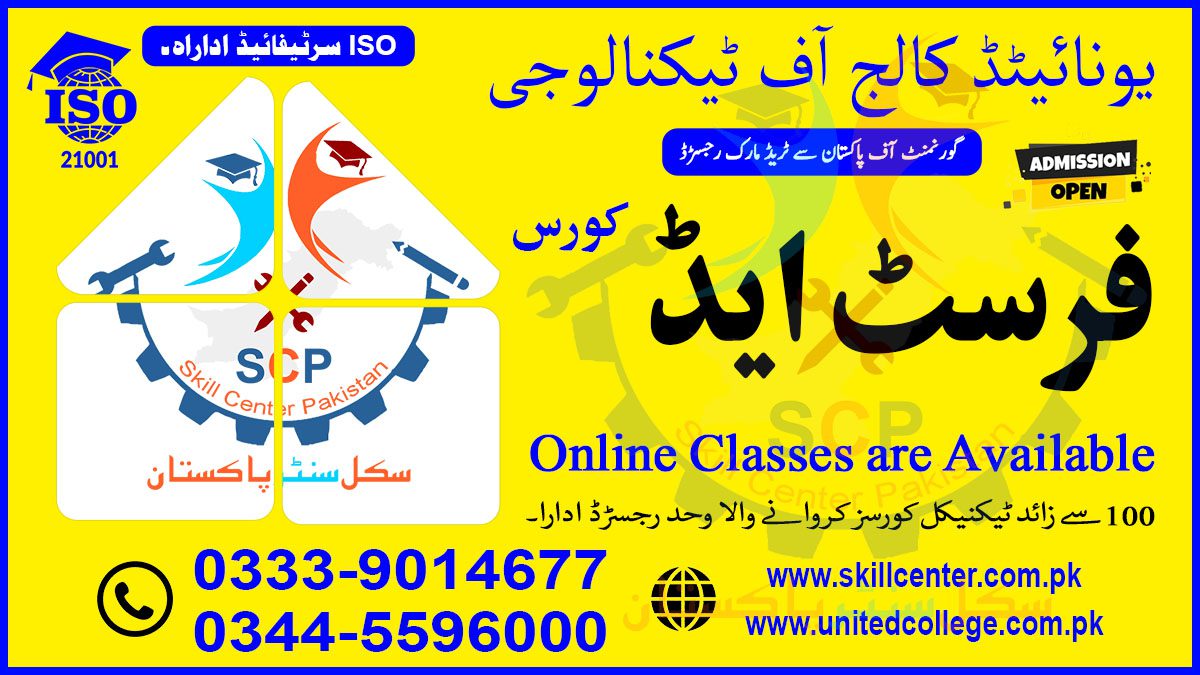
























Contact Information and Registration Process
Both beginners and professionals should follow these steps to contact and register for the First Aid Course which Skill Center Pakistan provides in Rawalpindi and Islamabad.
Contact Information
- Visitors interested in Skill Center Pakistan may use these communication channels for contact.
- The phone number for inquiries and assistance at Skill Center Pakistan is +92-333-9014677.
- The email address to contact is info@skillcenter.com.pk and you can reach them at that address to acquire additional information or send registration inquiries.
- You can find all course information at www.skillcenter.com.pk as well as multiple contact options through their official website.
The Rawalpindi or Islamabad office of Skill Center Pakistan operates as a site where you can conduct both inquiries and complete your registration process in person.
Registration Process
The First Aid Course admission process operates without difficulties. The enrollment procedure contains these following essential steps to get your spot.
1. Online Registration:
- Users can find the First Aid Course through www.skillcenter.com.pk.
- Enter your personal information together with contact details as well as preferred training dates into the online application.
- The form submission requires immediate confirmation through email which contains the following additional information.
2. In-Person Registration:
- Attend the Skill Center Pakistan office located in Rawalpindi or Islamabad for registration.
- Complete the registration form while present at the facility’s location.
- You must send the form with its necessary payment to secure your place in the training program.
3. Payment Options:
- Skill Center Pakistan accepts payment through bank transfers and cash payments together with online payment gateway systems. The necessary information will be sent after registrants sign up for the program.
4. Confirmation:
- When you finish completing your registration and payment process Skill Center Pakistan will send you an official confirmation by email or telephone containing the needed course specifications along with scheduling details and venue destination.
This valuable opportunity presents itself to obtain essential life-saving abilities. Contact Skill Center Pakistan right now to enroll in the First Aid Course for certified first aid certification.


















































Frequently Asked Questions (FAQ's)
The First Aid Course accepts every individual who wishes to enroll.
All individuals from students to professionals and parents as well as residents from the community can participate in the course. This course does not require any medical background for enrollment.
The course instructs students about what subjects to learn.
An essential part of the training teaches students the fundamentals of CPR alongside wound care techniques and methods to handle fractures and respond to choking situations plus information regarding burn recovery and management of heart attacks and strokes.
How long is the course?
The training period extends to 1-2 days yet students can access the classes within flexible scheduling options.
Is the course certified?
Participants who finish the course successfully obtain certification as the course meets workplace requirements along with personal usage validity.
Joining the course does not need any specific prerequisites.
No prerequisites are required. This course exists for novices along with participants who lack expertise in first aid.
What is the course fee?
The training fee matches accessible prices while the cost depends on which level of course participants choose. Contact Skill Center Pakistan to learn about the precise fees of their courses.
Where is the training conducted?
Students participate in the training program at Skill Center Pakistan Rawalpindi/Islamabad facility which has a physical setup that emphasizes practical learning activities.
Organizations together with groups have the opportunity to register for training at Skill Center Pakistan.
Skill Center Pakistan has the capability to organize training for groups of members and corporations as well as individuals. Contact Skill Center Pakistan to obtain individualized training packages for group enrolment.
Contact Skill Center Pakistan to start the course enrollment process.
Skill Center Pakistan offers two methods of registration including their website and their Rawalpindi/Islamabad office location where you can enroll personally.
What key factors make essential the training of first-aid skills?
Through the skills acquired from first aid training, one becomes capable of executing life-saving actions and injury mitigation that ensures proper medical care persists until experts arrive.
Skill Center Pakistan remains available to provide additional information about their services.





































































































































































































